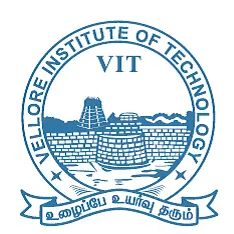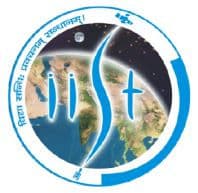Latest Applications Open 2024:
Vellore Institute of Technology regulates the VIT master’s Entrance Examination from the first week of June for those in earnest to get admission to MCA, M.Tech course.
The students will be designated for admission into their respective M. Tech programs. Admissions will be offered entrance examination. The students may complete the form online, producing its copy during admission. The admission will be granted according to the marks scored by the candidate in the entrance exam.
Vellore Engineering College Master’s Entrance Examination is known as [VITMEE]. The computer-based test (CBT) Objective Question Paper consists of 100 questions with a max of 100 marks, of which 80 will be from the chosen technical subject, and 20 will be from English communication. NO negative marks for wrong answers.
BM – BIO-Medical Engineering
- Mathematics: Calculus, Linear algebra, numerical methods, differential equations, probability theory.
- Basics of Circuits: Kirchoff’s laws, mesh and nodal Analysis, Circuit theorems. One-port and two-port Network Functions. Static and dynamic characteristics of Measurement Systems. Error and uncertainty analysis. Statistical analysis of data and curve fitting.
- Transducers and Measurement: Capacitive, Resistive, Inductive and piezoelectric transducers. Velocity and acceleration (translational and rotational), Measurement of displacement, force, torque, vibration, and shock.
- Analog Electronics: Characteristics of the diode, BJT, JFET and MOSFET Diode circuits. Transistors at low and high frequencies, Amplifiers, single and multi-stage, Feedback amplifiers. Operational amplifiers, characteristics, and circuit configurations. Instrumentation amplifier, Precision rectifier. V-to-I and I-to-V converter. Op-Amp-based active filters. Oscillators and signal generators.
- Digital Electronics: Combinational logic circuits, minimization of Boolean functions. IC families, TTL, MOS, and CMOS. Arithmetic circuits. Comparators, Schmitt triggers, timers, and mono-stable multi-vibrator. Sequential circuits, flip-flops, counters, shift registers. Multiplexer, S/H circuit. Analog-to-Digital and Digital-to-Analog converters. Basics of the number system. Microprocessor applications, memory, and input-output interfacing. Microcontrollers.
- Signals, Systems, and Communications: Impulse response, Periodic and aperiodic signals. Transfer function and frequency response of first- and second-order systems. Convolution, correlation, and characteristics of linear time-invariant systems. The discrete-time system, impulse, and frequency response. Pulse transfer function. IIR and FIR filters. Amplitude and frequency modulation and demodulation. Sampling theorem, pulse code modulation. Frequency and time-division multiplexing. Amplitude shift, frequency-shift, and pulse shift keying are for digital modulation.
- Electrical and Electronic Measurements: Bridges and potentiometers, measurement of R, L, and C. Measurements of voltage, current, power, power factor, and energy. A.C & D.C current probes. Extension of instrument ranges. Q-meter and waveform analyzer. Digital voltmeter and a multimeter. Time, phase, and frequency measurements. Cathode ray oscilloscope. Serial and parallel communication. Shielding and grounding.
- Analytical, Optical, and Biomedical Instrumentation: Mass spectrometry. UV, visible, and IR spectrometry. X-ray and nuclear radiation measurements. Optical sources and detectors, LED, laser, photo-diode, photo-resistor, and their characteristics. Interferometers, applications in metrology. Basics of fibre optics. EEG, ECG, EMG, Clinical measurements, Ultrasonic transducers, and Ultrasonography. Principles of Computer Assisted Tomography.
CI – Civil Engineering
The strength of Materials & Structural Analysis
- The Strength of Materials: Simple Stress and strain relationship Stress and strain in two dimensions, principal stresses, stress transformation, Mohr’s circle. Bending moment and shear force in statically determinate beams. Simple bending theory, flexural and shear stresses, unsymmetrical bending, shear centre. Thin-walled pressure vessels, uniform torsion, column buckling, combined and direct bending stresses.
- Structural Analysis: arches, beams, cables, and frames; Analysis of statically determinate trusses, displacements in statically determinate structures and analysis of statically indeterminate structures by force/energy methods; analysis by displacement methods (slope deflection method); influence lines for determinate and indeterminate structures. Basic concepts of matrix methods of structural analysis.
- Reinforced Concrete Structures: basics of mix design, Concrete Technology- properties of concrete. The concrete design basis is working stress and limit state design concepts, analysis of ultimate load capacity and design of members subjected to flexure, shear, compression, and torsion by limit state methods. Basic elements of prestressed concrete, analysis of beam sections at transfer and service loads.
- Steel Structures: column bases, Analysis, and design of tension and compression members, beams, and beam columns. Connections simple and eccentric, beam-column connections, plate girders, and trusses. Plastic analysis of beams and frames.
Geotechnical Engineering
- Soil Mechanics: soil classification, Origin of soils, three-phase system, fundamental definitions, relationship and interrelationships, permeability and seepage, effective stress principle, consolidation, compaction, shear strength.
- Foundation Engineering: drilling boreholes, sampling, penetration tests, plate load tests. Earth pressure theories, Sub-surface investigations- scope, the effect of the water-soluble, layered soils.
- Stability of slopes-infinite slopes, finite slopes. Foundation types foundation design requirements. Shallow foundations-bearing capacity, the effect of shape, water table, and other factors, stress distribution, settlement analysis in sands and clays. Deep foundations – pile types, dynamic and static formulae, the load capacity of piles in sands and clays, negative skin friction.
Water Resources Engineering
- Fluid Mechanics and Hydraulics: Principle of conservation of mass, momentum, properties of fluids, energy, and corresponding equations, potential flow, applications of momentum and Bernoulli’s equation, laminar and turbulent flow, flow in pipes, pipe networks. The concept of the boundary layer and its growth.
- Uniform, critical, and gradually varied flow in channels, specific energy concept, hydraulic jump. Forces on immersed bodies, flow measurements in channels, tanks, and pipes. Dimensional analysis and hydraulic modelling. Kinematics of flow, velocity triangles, and specific speed of pumps and turbines.
- Hydrology: stage-discharge relationships, rainfall, evaporation, hydrologic cycle, infiltration, unit hydrographs, flood estimation, reservoir capacity, reservoir, and channel routing. Well, hydraulics.
- Irrigation: Delta, duty, estimation of evapotranspiration. Crop water requirements. The design of lined and unlined canals, waterways, headworks, gravity dams, and spillways. The design of weirs on permeable foundation. Types of the irrigation system, irrigation methods. Waterlogging and drainage, sodic soils.
Environmental Engineering
- Water requirements: basic unit processes and operations for water treatment, Quality standards. Drinking water standards, water requirements, basic unit operations, and unit processes for surface water treatment distribution of water. Sewage and sewerage treatment, quantity, and characteristics of wastewater.
- Primary, secondary and tertiary treatment of wastewater, sludge disposal, and effluent discharge standards. Domestic wastewater treatment, the number of characteristics of domestic wastewater, primary and secondary treatment Unit operations, and unit processes of domestic wastewater, sludge disposal.
- Air Pollution: Types of pollutants, their sources and impacts, air pollution meteorology, air pollution control, air quality standards, and limits.
- Municipal Solid Wastes: generation, Characteristics, collection, and transportation of solid wastes, engineered systems for solid waste management (reuse/ recycle, energy recovery, treatment, and disposal).
- Noise Pollution: permissible limits of noise pollution, Impacts of noise, measurement of noise, and control of noise pollution.
Transportation Engineering
- Highway Planning: testing and specifications of paving materials, highway Geometric design, and flexible and rigid pavements.
- Traffic Engineering: Traffic characteristics, the theory of traffic flow, intersection design, traffic signs and signal design, and highway capacity.
If you have any queries regarding the VITMEE 2025 Syllabus, you can ask your query and leave comments below.

As a dedicated Biology Science graduate, I’m passionate about sharing the latest updates in national and state entrance exams through my blog. I aim to keep aspiring students informed about exam trends, important dates, and changes in syllabi. With a keen interest in education, I strive to offer valuable insights for students navigating the competitive landscape of entrance examinations and admission tests. Stay updated with me.


